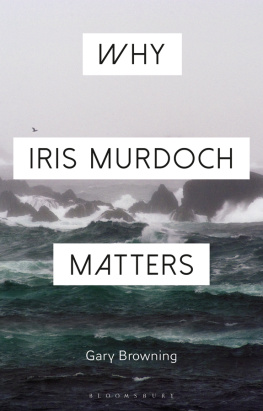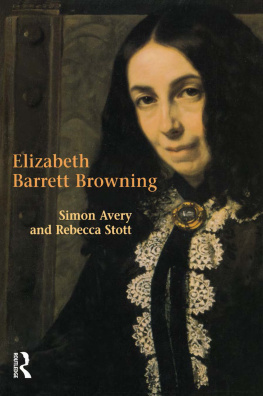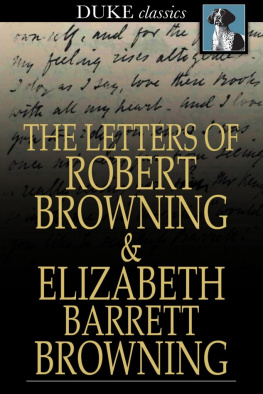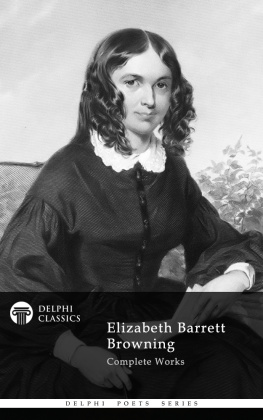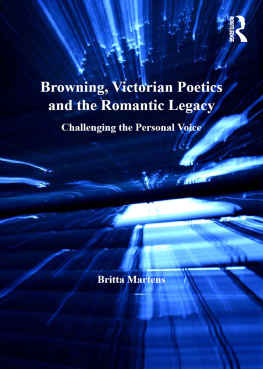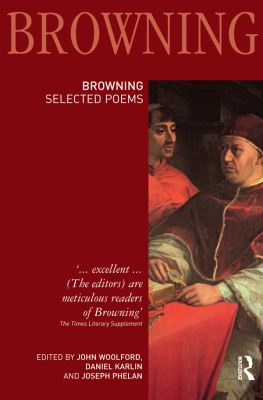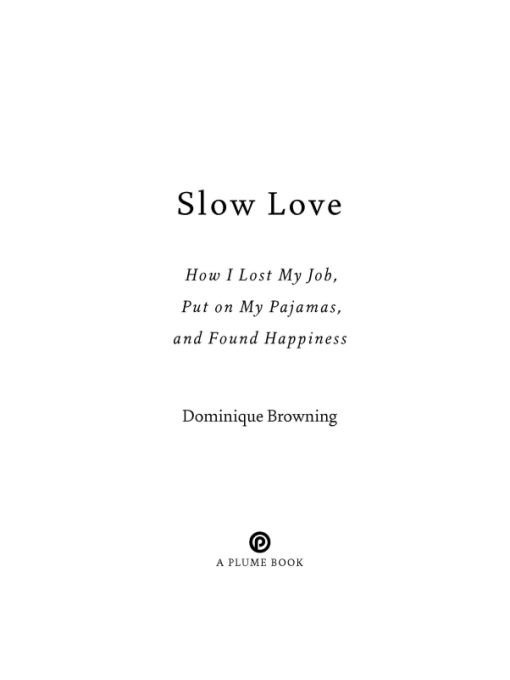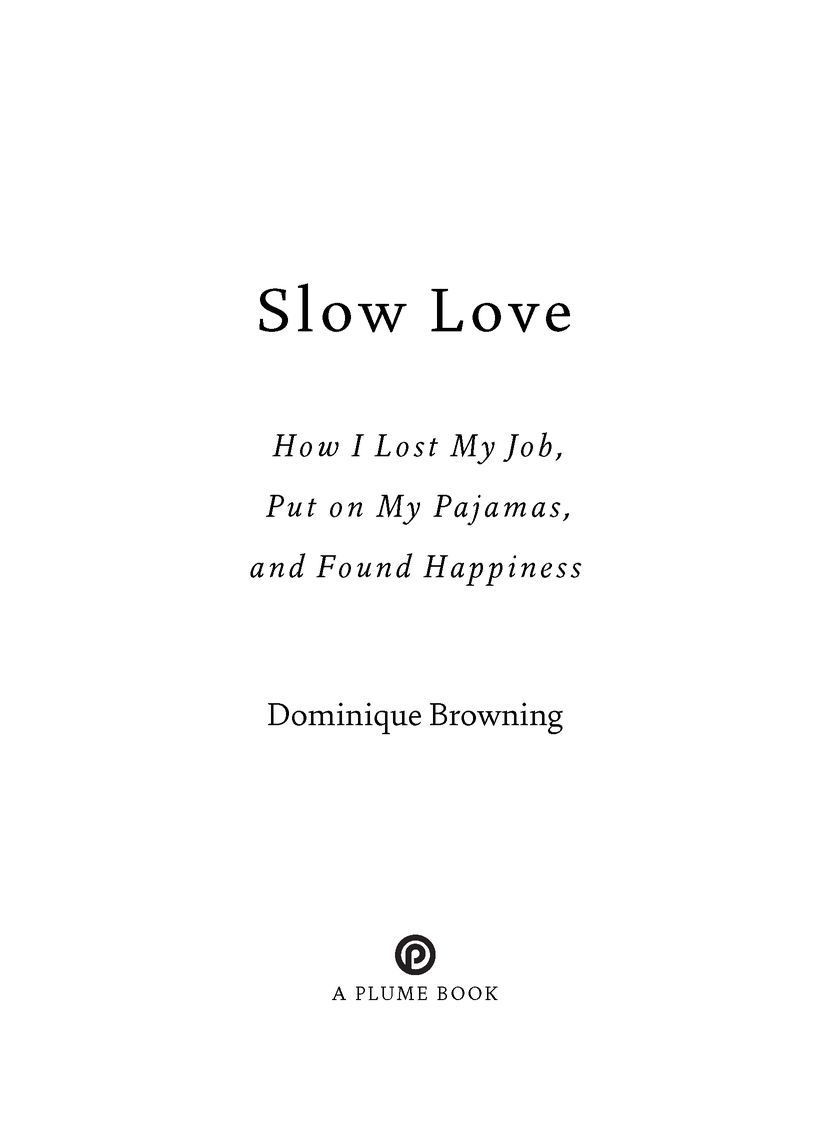Table of Contents
For
Amanda Urban,
who changed my life,
and
Patricia Yarberry Allen,
who saved it
The gloom of the world is but a shadow;
behind it, yet within our reach, is joy.
Take joy.
FRA GIOVANNI GIOCONDO
PROLOGUE
MY EIGHTY - YEAR - OLD French cousins voice rings in my ears. We are in Paris; I have squeezed in time to see her during a hectic business trip. We are walking down the Champs lyses, which to her eye looks the same as it did in the late 30s, when she arrived here from Casablanca. She survived World War II by claiming to be a Catholic; she lost much of her family in Auschwitz. Now she is learning to live without her husband of fifty years. He was twenty years her senior, so it hasnt upset the natural order of things for him to go first; in the last ten years he was miserable with illness. An older man, she used to tell me when I was in my twenties, living with her, an older man is a wonderful thing for a young girl. He knows how to hold her in his arms. He knows how to make love to a woman. He knows how to waltz. But never marry an older man, chrie. I was young. I wanted to wear my dancing slippers for years. Before long, all he wanted from me were his bedroom slippers.
Colette is an elegant person, perfectly groomed in a classic style of dress. She has always been a gracious hostess, a busy mother, and an ardent shopper. But today, it isnt her husband who is on her mind. We are strolling slowly, her arm in the crook of mine. She is, as usual, immaculately turned out; her bag matches her shoes, her coat is a pearly white wool. Today, she wants to talk about drugs.
Le Prozac! she begins shouting, to my disbelief. She has stopped in the middle of the sidewalk, her arms spread as if to embrace the world. Le Prozac! Cest un miracle! I turn and stare at her, and she sweeps her hands dramatically down her coat. Le Prozac! Cest un impermablea raincoat! Everything just washes off. The rain comes downpoof! Gone. Nothing bothers me anymore. Why didnt I find this miracle thirty years ago? She fixes me with a penetrating look. I am her age, thirty years ago. Finally, I can slow down. No more worries. I can have peace. Jadore le Prozac!
So there you have it, Im thinking, eighty years and finally shes found a way to quiet what must have been a constant anxiety in her headan incessant voice urging perfection, order, restraint, and speed in all things: do more, do it better, do it faster, faster, faster. Now here she is, at eighty, almost weeping with relief and joy at letting go of that clamor.
But do I listen to her? Do I really hear what she is saying? Of course not.
I return to New York and leap right back into my frenetic life. Nothing moves fast enough. Everything is great! Everything is insane! Work is driving me crazy? I love my job! My relationships with men go nowhere? So what! I dont see enough of my friends? Later! There isnt enough time to do all the things I want to do? I dont even know what I want to do! I seem to spend all my time doing all the things everyone else wants me to do? But thats fine, really! Who has time to think about this stuff, anyway? Thats life, isnt it?
Until suddenly one day it isnt.
Until suddenly Ive lost my job. Ive lost the very thing that defined my days, paced and regulated my life. The wind is knocked out of me. Suddenly Im floundering. Im terrified. And Im not alone. All around me, for all sorts of different reasons, by 2008 thousands of people are being knocked off course, losing their bearings. Were losing our jobs, ending careers, losing life savings, losing homes. Like everyone else, Im scrambling to pick myself up. Mine is not a story of financial ruin, though certainly I have had to alter the contours of my life without a regular salary. It is a story of psychological collapse, of struggling to start over againand not make all the same mistakes.
No, scratch that. Thats a bad habit I am determined to shed, the habit of casting doubt over every decision Ive ever madegoing as far back as high school!thats led to where I am now. I suspect that no matter what other choices I might have made, I still would have been running, running, running for all I was worth, because I didnt know any better. Most of us dont. And all that racing around wasnt all bad, either. It simply wasnt... sustainable. Or fulfilling.
So now Im faced with two possible responses. Either I crack up, or I use this trauma as an opportunity to grow.
Of course I crack up. I become infantile, in my way. Just enough to start learning how to live all over again. Just enough to learn to turn to friends and ask for help. Just enough to realize that it is time to redefine what success means to me. What follows, then, is an account of my journey through a painful time. My story is particular to me, mine alone, as are my family, my friends, my responses, my habits, and my heartbreaks. But the lessons I have learned are born of emotions that are universal.
At the start of this journey, all I could think about was loss: lost work; my children who had left home; my house slipping from my grasp; my parents slipping into their last years. Lost love, on top of it all, because I was finally forced to confront the failure of a relationship that had preoccupied me for seven years. Attachment, abandonment, miseryI was plagued, until, mysteriously, something in my brain shifted into a new gear, and I was no longer experiencing all the changes I was going through as the loss of everything I loved. Instead, I began feeling the value of change and... experience, eventsyes, some of them calamitousthat have unexpectedly come to enhance the quality of my days.
In other words, life.
It never gets easier. But if were paying attention, it can get simpler.
Le Prozac, miracle though it might be, doesnt turn out to be my answer. Ive never been one to let things wash off me. If anything, I feel more deeply than ever. The pace of my life has slowed down, even as the pace of the world seems to have quickened. As it turns outand I didnt know it would when I began writingthis is ultimately a book about what comes of slow living: slow love.
Now, slow food is a concept I could embrace the minute I first heard about it. I thought all I had to do was let other people do the slow thing, so that I could enjoy a fabulous meal. By contrast, slow livingslowing myself downas an operative concept, was alien to me. I never would have done it if I hadnt been forced to. But as I began to appreciate what was happening in my life, I realized that slow living set a gentle, healing pace. It allowed me to catch my breath, to rethink, no, to reexperience and re-feel my priorities. It showed me a way to settle in for the long haul, whats left of it.
Slow living, I have come to understand, opens up the prospect of slow love, the most sustaining sort of love I have ever knowna love that comes of an unhurried and focused attention to the simplest things, available to all of us, at any time, should we choose to engage: family, friendship, food, music, art, books, our bodies, our minds, our souls, and the life that blooms and buzzes all around us. Perhaps even more importantly, slow love comes out of the quiet hours, out of learning from the silence that is always there when we want it. I still hardly know how to describe it, but somehow, during the long months after getting knocked off my career track, and at the same time having to face the end of an intense love affair, I connected with something under and beneath and over everything, and caught a glimmer of peace. I still have my moody seasons, the occasional blights, the drooping days, yet even then I feel as if I have grown a new taproot, one that reaches deeper into nourishing soil. I am more resilient. If I had to pin it down, I would say I finally fell open to the miracle of this world.


